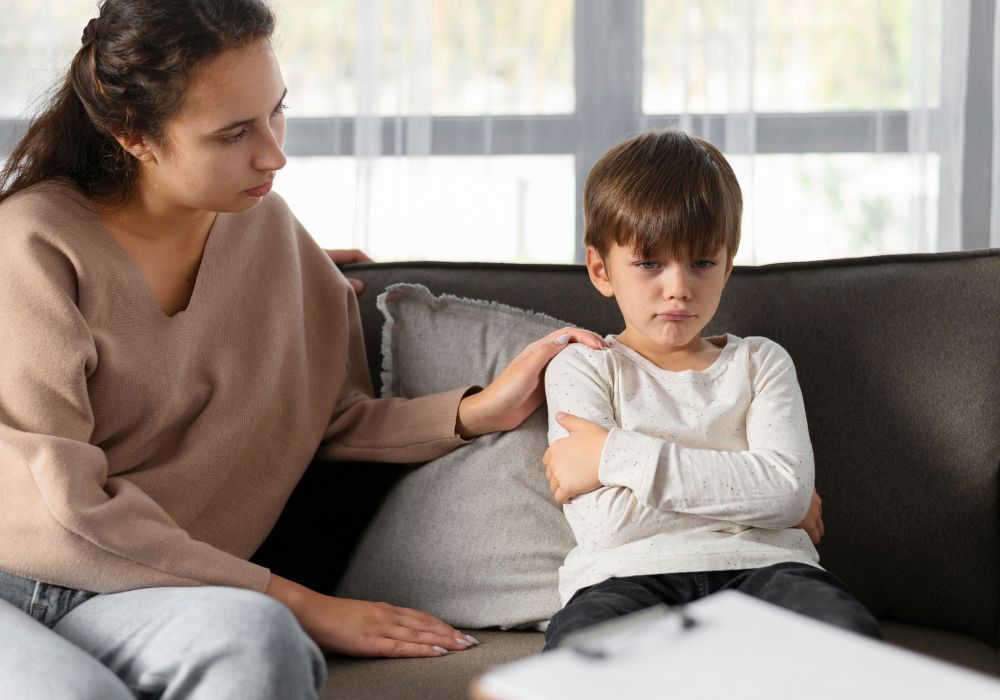In recent years, there has been a growing recognition of the importance of mental health, not just for adults but also for children. Childhood mental health issues are increasingly being acknowledged as critical to the overall well-being and development of young individuals. Recognizing and addressing these issues early can make a significant difference in a child’s life, setting the stage for healthier and happier adulthood.
Understanding Childhood Mental Health Issues
Mental health issues in children can manifest in various ways, ranging from anxiety and depression to behavioural disorders and developmental challenges. These issues are not always easy to identify, as children may not have the vocabulary or understanding to express what they are experiencing. Therefore, it is crucial for parents, teachers, and caregivers to be vigilant and proactive in recognizing the signs of mental health challenges in children.
Common Signs And Symptoms
- Behavioral Changes: Sudden or drastic changes in behavior are often a red flag. This can include increased irritability, aggression, withdrawal from social interactions, or a noticeable decline in academic performance.
- Emotional Outbursts: Children experiencing mental health challenges may have frequent emotional outbursts, such as crying, anger, or frustration, without any apparent reason.
- Sleep Problems: Difficulties with sleeping, such as insomnia, frequent nightmares, or excessive sleeping, can be indicators of underlying mental health problems.
- Physical Complaints: Sometimes, children express mental distress through physical symptoms like headaches, stomachaches, or other unexplained aches and pains.
- Changes in Eating Habits: A sudden increase or decrease in appetite, or rapid weight loss or gain, can also be symptoms of mental health issues.
- Difficulty Concentrating: Problems with focus and concentration, easily getting distracted, or an inability to complete tasks may point to underlying issues.
Causes Of Childhood Mental Health Issues
Several factors can contribute to the development of mental health challenges in children, including:
- Genetics: A family history of mental health disorders can increase a child’s risk.
- Environment: Stressful or traumatic environments, such as exposure to violence, abuse, or neglect, can have a profound impact on a child’s mental health.
- Life Events: Significant changes or losses, such as the death of a loved one, divorce, or moving to a new place, can trigger mental health problems.
- Biological Factors: Neurodevelopmental disorders, chemical imbalances, or other biological factors can also play a role.
The Importance Of Early Intervention
Early intervention is crucial in managing childhood mental health issues. The earlier these issues are identified and addressed, the better the outcomes for the child. Early intervention can include a range of approaches, from counseling and therapy to medication and support services. The goal is to provide the child with the tools and strategies they need to cope with their challenges and thrive.
Steps To Address Childhood Mental Health Issues
- Education and Awareness: Educating parents, teachers, and the community about the signs and symptoms of childhood mental health issues is the first step in early recognition and intervention.
- Open Communication: Encouraging open and honest communication with children about their feelings and experiences can help identify issues early. Creating a safe and supportive environment where children feel comfortable expressing themselves is vital.
- Professional Help: Seeking professional help from psychologists, psychiatrists, or counselors is essential for diagnosing and treating mental health issues. These professionals can provide tailored interventions and therapies that address the specific needs of the child.
- School Involvement: Schools play a critical role in supporting children’s mental health. Implementing programs that promote mental well-being, training staff to recognize and respond to mental health issues, and providing resources for students and families can make a significant difference.
- Support Networks: Building a strong support network that includes family, friends, teachers, and mental health professionals can provide the child with the comprehensive support they need.
- Self-Care and Coping Strategies: Teaching children self-care practices and coping strategies can empower them to manage their mental health. This can include mindfulness, relaxation techniques, physical activity, and healthy eating habits.
Breaking The Stigma
One of the biggest barriers to addressing childhood mental health challenges is the stigma that surrounds mental health. It is essential to challenge and change the misconceptions and negative attitudes toward mental health issues. Promoting a culture of acceptance and understanding can encourage more families to seek help without fear of judgment.
Conclusion
Recognizing and addressing childhood mental health issues is a crucial aspect of ensuring the overall well-being and development of children. By being vigilant, supportive, and proactive, we can help children navigate their mental health challenges and pave the way for a healthier and more fulfilling life. Early intervention, open communication, professional help, and a supportive environment are key components in this endeavour. Together, we can make a difference in the lives of children facing mental health issues, helping them achieve their full potential.





